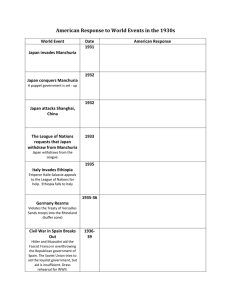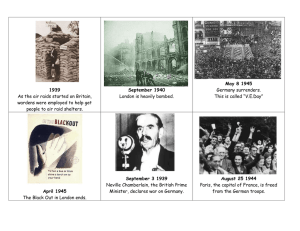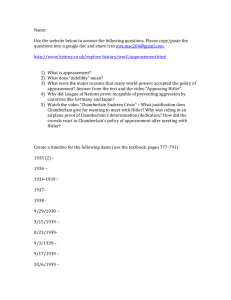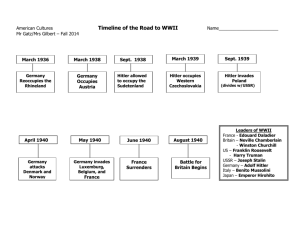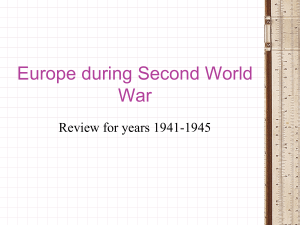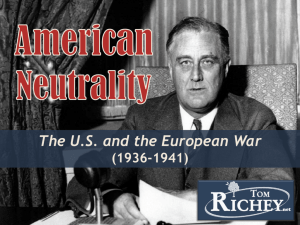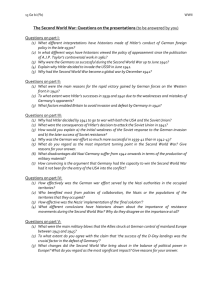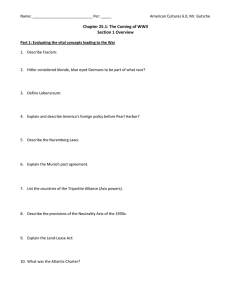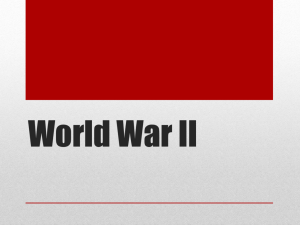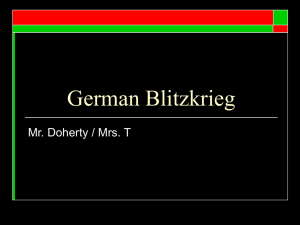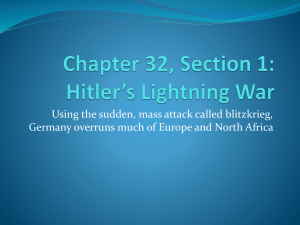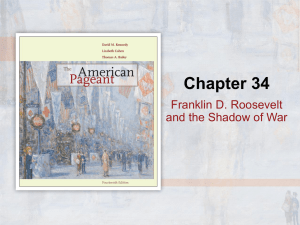ppt
advertisement
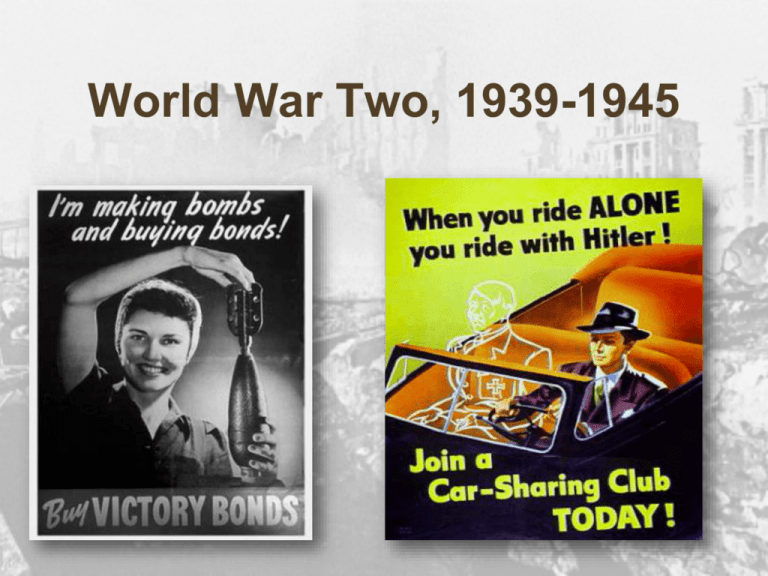
World War Two, 1939-1945 PRINCIPAL BELLIGERENTS: • Axis powers: Germany Italy Japan • Allies: China Poland Great Britain France Soviet Union, from June 1941 United States, from December 1941 Appeasement and Aggression • March 1938: Anschluss (“joining”) • Austrians warmly greeted Hitler • 1938-39: Appeasement: Neville Chamberlain • Sept. 1938: Munich Agreement Outbreak of war • March 1939: Germany occupied Czechoslovakia • August 23, 1939: German-Soviet Nonaggression Pact • Sept. 1, 1939: Germany invades Poland • Sept. 3, 1939: Britain and France declare war on Germany • Sept. 17, 1939: Soviet Union attacked Poland • Soviet Union imposed control over Lithuania, Estonia and Latvia • Nov. 1939-March 1940: Soviet-Finnish War or the Winter War • German armies attacked Holland and Belgium • May 10, 1940: British Prime Minister N. Chamberlain resigned • Winston Churchill formed a coalition government: “An appeaser is one who feeds a crocodile hoping it will eat him last.” Blitzkrieg: "Lightening War" • • • • • Panzer Divisions Armored vehicles motorcycles Planes Concentrated attack Blitzkrieg (cont.) • Germans quickly took France (occupied Paris on June 14, 1940) • June 22, 1940, at Rethondes (the scene of the signing of the Armistice of 1918) Franco-German Armistice was signed • Vichy France created: General HenriPhilippe Petain became head of state German occupied Europe Battle of Britain, June-September 1940 • Britain won: Why? Winston Churchill “Never Surrender” Spitfires RADAR Goering’s unclear strategy RAF or civilian targets Hitler lost interest German-Soviet War, 1941-45 • • • • Mein Kampf (My Struggle) Lebensraum (Living space) Slavs - “subhumans” Poor Soviet Army performance in “Winter war” with Finland • Possibility of Soviet attack • Hitler: “We have only to kick in the door and the whole rotten structure will come crashing down!” June 22, 1941: Germany broke Non-Aggression Pact and attacked USSR: Operation Barbarossa
